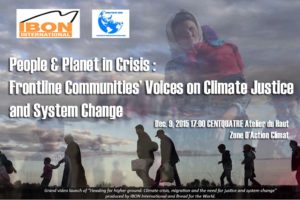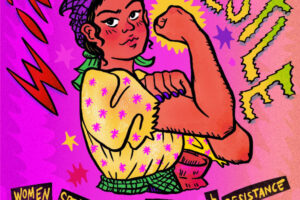IBON International Updates #06
(TOKYO, October 13)—Growing joblessness, financial instability and sluggish growth of the global economy threw long shadows over this year’s annual meetings of the International Monetary Fund (IMF) and the World Bank Group (WB) in Tokyo, Japan. The summit kicked off the official meetings yesterday with a plenary graced by the Crown Prince of Japan.
Riad Toufic Salameh of Lebanon, chair of the annual meetings, noted Japan’s 60th anniversary as a member of the IMF and WB and the resilience of the Japanese people in the aftermath of calamity. While admitting the somber global context given “protracted concerns” on developed economies and “moderating growth” in emerging and low-income economies, Salameh underscored additional resources committed for the IMF that will bring its lending power to US$1 trillion and the WB’s lending of over US$53 billion last year.
Salameh also touched on how “balanced and inclusive growth” is more challenging today with 200 million people needing jobs worldwide, and the historic changes and continuing challenges in the Middle East.
In her address, IMF Managing Director Christine Lagarde said that the world is being reshaped by major trends such as demographic changes, spreading economic power and prosperity, and innovations in communications and technology. On the heels of this seeming optimism is the admission that “global recovery is still too weak, jobs are still too scarce, and the gap between rich and poor still too wide.”
Moving forward, Lagarde sees three milestones: “putting the crisis behind us; completing the financial sector reform; and addressing inequality and building inclusive growth.” Among the policies she identified to achieve these are accommodative monetary policy, fiscal adjustment, banking sector cleanup and structural reforms for productivity and growth.
Lagarde said, “The IMF must always be a trusted adviser.” This means more aggressive surveillance and assessment of policies at country and global level, with countries prospectively taking any bitter pill from the IMF. Aside from this, Lagarde stressed the need for the IMF to have adequate resources and continue the already two-year old quota and governance reforms that promise to bring Brazil, China, India, and Russia to the top ten shareholders.
Jim Yong Kim, addressing the plenary for the first time as WB president, acknowledged, “Four years after the global financial crisis struck, we are all still collectively seeking to rebuild stability and restore confidence.” He noted the economic and financial instability in Europe threatening the economy and employment in developing countries as well as the skyrocketing food prices affecting the poorest.
Echoing his ongoing social media campaign, Kim asked, “what will it take to end poverty and build shared prosperity” and “how do we unleash the potential of every economy?” He talked about accelerating progress and “bending the arc of history”—a phrase derived from a popular Martin Luther King Jr. quote. He offered the WB’s knowledge and technical assistance even in rich countries undergoing economic reforms. For emerging economies, he highlighted “new diverse instruments such as lending to subnational governments and financial services in asset management and hedging.”
Meanwhile, the WB chief continued, poor countries can “become the next generation of emerging markets” through building accountable institutions, having dynamic private sectors, and discovering new natural resources. He also mentioned the WB’s championing of natural capital accounting “to encourage countries to better understand and manage their natural assets.” Civil society has strongly criticized this strategy, saying that it paves the way to the commodification of ecosystems and privatization of the commons.
On the future of the WB, Kim discussed his idea of transforming the institution from being a “knowledge” bank to being a “solutions” bank. He highlighted initial actions to achieve this—such as establishing a measurable bottom line, strengthening implementation and results, improving ability to provide integrated solutions, and investing in data and analytic tools—and promised a progress report in six months.
Notably absent in the annual meetings is China. Speculations on China’s boycott of the Tokyo summit revolved around its row with Japan over disputed islands in East China Sea.
A program of seminars organized by the IMF-WB as well as various civil society forums, which run from October 10 to 13, preceded this plenary session. IBON International and Reality of Aid Asia Pacific, in cooperation with Japanese NGO Center for International Cooperation, hosted a forum on “Results and Sustainability: Rights-based Perspectives” last October 10. The annual meetings are expected to end on October 14. ###


